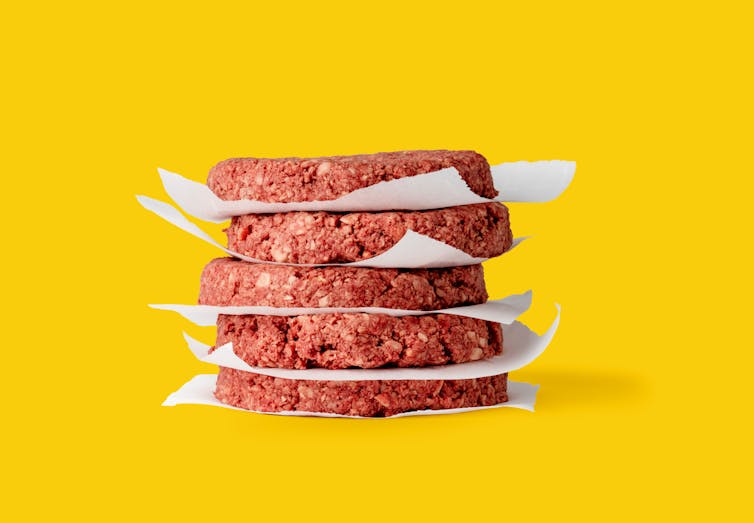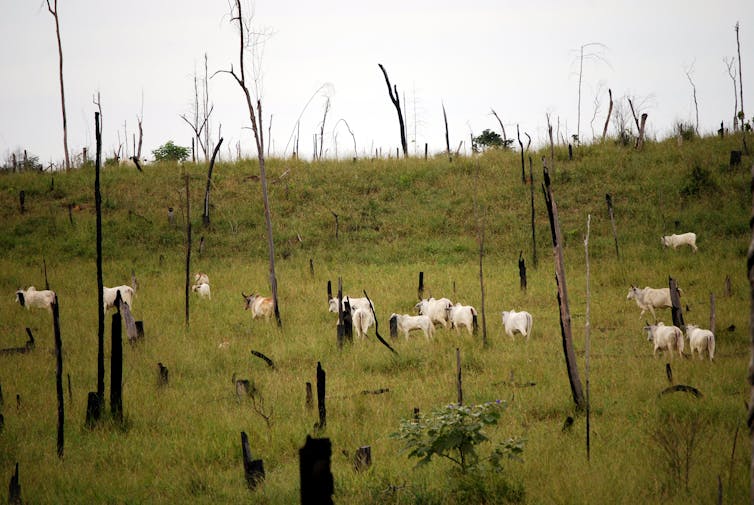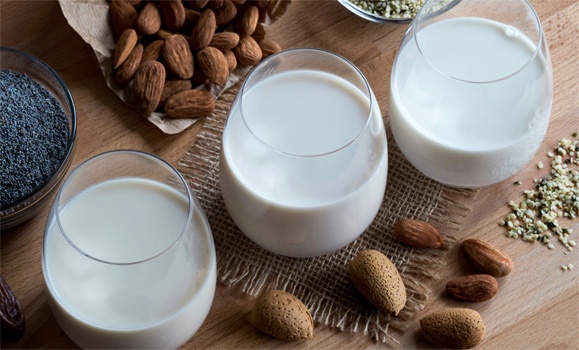This article was originally published on , which features includes relevant and informed articles, written by researchers and academics in their areas of expertise and edited by experienced journalists.
┤í│▄│┘│ˇ┤ă░¨╠ř is Associate Professor Sustainable Food Systems and Director of Rural Research Centre at ║┌┴¤│ď╣¤═°'s Faculty of Agriculture.
Last October, movie director James Cameron and his wife Suzy Amis Cameron . Once it is up and running, this facility will be in North America.
At a news conference, Cameron said he was ÔÇťnot unsympatheticÔÇŁ to the cattle industry, but that he was , and wanted to help reduce meat consumption and greenhouse gas emissions and improve health.
This is a critical time for our planet. What we eat and how we get our food will shape its future.
Climate change, destructive weather, volatility in food production and the rise of non-communicable diseases (diabetes and elevated blood pressure, for example) that have become the demand that we think hard about what we eat and call for more sustainability in our global food systems.
Powered by plants
Last year set the stage for plant-based eating with the release of the and other plant-based proteins that resemble beef. People can live well and the appetite for them is growing.

found that 17 per cent of Americans adhere to a plant-based diet exclusively or predominantly, while another 60 per cent are cutting back on meat-based products. Similar trends are .
A decrease in meat-eating could help governments save billions in health care costs. are linked to a growing burden of chronic conditions, such as diabetes, cardiovascular diseases and some cancers.
In Canada, a recent report found that if diets and lifestyles remained unchanged. These escalating costs are mostly driven by an increase in the use of drugs, medical technology and human resources to treat these diseases.
Planting ahead
Global food systems are increasingly generating severe human, social, environmental and economic costs. In an effort to boost efficiency, productivity and profits, we have intensified and mechanized agricultural processes, including plant and animal breeding.
As a result, our food production and consumption habits have become .
We need smarter, healthier and kinder approaches.
For example, it is grossly inefficient to grow grains and feed them to livestock. It would be if humans ate these grains and seeds instead.
It would also be more equitable. The price of grains increases when feedstocks are channelled to industrial animal agriculture, and .
A food makeover
Both the and the have called for reforms in food and farming systems. The evidence gathered reveals the need for limits on chemical-intensive agriculture, intensive livestock production, the mass production and mass marketing of ultra-processed foods and for sustainability practices to drive needed improvements to long and deregulated global commodity supply chains.

In short, they are advocating for more sustainable diets across the planet. Sustainable diets seek to achieve positive outcomes for people, animals and the planet by taking into account health, environment and equity in diet, as well as lifestyle.
Independent research groups, such as , are also collaborating with citizens and social movements to shape policies and encourage the transition to more sustainable food systems.
In a , IPES-Food and the Global Alliance for the Future of Food highlighted the many ways food is connected to our lives. They urge governments, industry and citizen-consumers to build more integrity into food systems by applying reliable approaches that are holistic, publicly supported and that replace poor outcomes with inspiring and sustainable results.
Succulent opportunities
Innovation with greens and plant-based foods is . With plant-based businesses growing exponentially, traditional food companies are seizing opportunities to invest in plant-based brands.
Maple Leaf Foods, CanadaÔÇÖs largest meat distributor, to include plant-based protein foods by acquiring Lightlife Foods and Field Roast, which offer grain-based ÔÇťmeatÔÇŁ and vegan cheese products. These are not lightweight businesses: Field Roast had approximately US$38 million in sales in 2016.
Tyson Foods, a prominent U.S. meat producer, has also , and the multinational food company , a plant-milk company.
Many more business opportunities await those with imagination. More succulent foods are anticipated in the market and some will include pea protein from the facility launched by James Cameron and team.
![]() The future could mean cleaner air, water and fortified soils, along with healthier and more equitable lifestyles ÔÇö all powered by delicious plant foods.
The future could mean cleaner air, water and fortified soils, along with healthier and more equitable lifestyles ÔÇö all powered by delicious plant foods.
Read the  at The Conversation Canada.
║┌┴¤│ď╣¤═° is a founding partner of The Conversation Canada, a new-to-Canada online media outlet providing independent, high-quality explanatory journalism. Originally established in Australia in 2011, it has had more than 85 commissioning editors and 30,000-plus academics register as contributors. A full list of articles written by ║┌┴¤│ď╣¤═°academics can be found on┬á.

